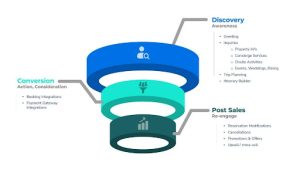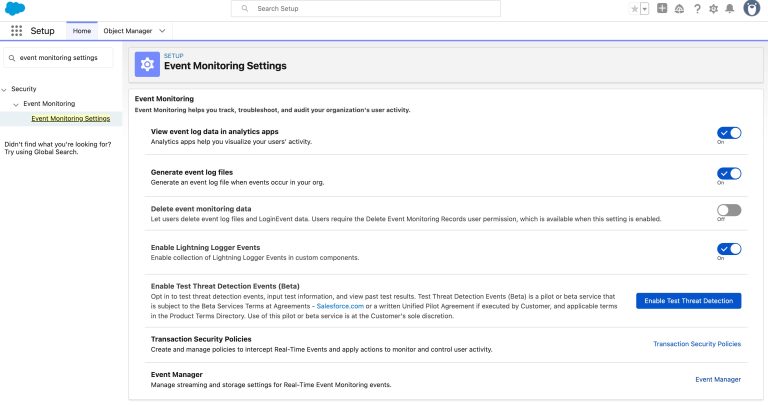
Martech practitioners specialize in specific products. That’s not news. It makes sense for people to learn how to utilize a specific platform effectively. However, that’s not always ideal when putting together a team.
This is crucial to consider when developing one’s skills, recruiting new employees, and assembling a martech stack.
Recruiting with one product in mind
I’ve seen companies with job postings for Drupal developers that require applicants to have expertise with PHP, but no experience with the platform. Drupal is based on PHP, and any developer working with it must know that programming language.
However, there’s so much more to Drupal than PHP, and the platform and community have numerous standards and practices that aren’t involved in knowing PHP.
As a result, many companies hire competent PHP developers who, despite their best intentions, didn’t use Drupal effectively from the outset.
Providing support and education for new hires
There are ways to address this lack of knowledge. For instance, if an organization already has Drupal developers who understand the platform, they can help educate the new hire.
Dig deeper: How to get your organization aligned for the AI age
If the organization has a Drupal vendor, they can help the new hire get up to speed. Of course, the organization could’ve listed Drupal experience — even if it is just preferred but not essential — as a requirement as well. The same applies to marketing automation platforms, CRMs and so on.
Evaluating personal investment in a platform
As I mentioned in an interview with Chris Wood about marketing ops in merger and acquisition situations, people not only specialize but also personally invest in specific products.
Personal product investment can certainly offer benefits, as people, for example, develop advanced skills and actively participate in user communities to find new and better ways to accomplish their goals. Deep investment in a community lets practitioners influence product roadmaps to address the needs of their organization.
However, there are some drawbacks. When people invest deeply in one product, they may not closely follow developments in competing products. They may also not follow relevant trends as they primarily rely upon their favorite product’s booster community for broader specialty trends. This means they may not adjust to changes over time. Their favored product may make the best sense at one time, but its competitors may evolve to change that calculus later on. The personal investment may close their eyes to many important factors.
Taking into account the entire stack
Products rarely operate independently. A broader stack perspective may suggest that it’s worth switching to another product to work better with the rest of the stack.
That could lead product specialists to feel threatened or frustrated that they have to learn a new product. They may even fear that a temporary dip in productivity will jeopardize their jobs.
This is similar to concerns that arise when integrating stacks following a merger or acquisition. Fortunately, change management can help team members respond more positively to such changes.
Considering employees’ perspectives
While there are stack-wide considerations at play, it’s also crucial to consider the employee side. For example, two senior stakeholders may disagree on which analytics platform is best for the organization. One may specialize in a particular product, while the other had a lackluster experience with it in the past. Whose perspective prevails?
A more indirect interplay occurs when the stakeholders may champion products for their own stack functions. What happens if that pairing is less than ideal regarding integrations or other vital connections?
I know that product success depends on owners and users being invested in using it. So, if the stakeholders can’t agree upon a better pairing, it’s better to have two stack components that are both used. That may justify the business decision to stick with a specific pairing, but it is prudent to consider the costs associated with such an arrangement. It’s essential to note that practitioners specializing and investing in products is not inherently and. As I mentioned with PHP and Drupal, there are advantages to this. That shouldn’t come at the expense of keeping track of broader trends and developing portable skills that are valuable regardless of the particular product in question.
Dig deeper: How to measure your CreativeOps maturity to unlock performance
Noted martech experts also discuss what practitioners should consider when it comes to platform specialization.
Real Story Group founder and President Tony Bryne warns practitioners not to tie themselves to specific platforms and vendors. He recently shared in a LinkedIn article: “Vendors and platforms come and go… vendor attention and roadmaps can wander. Vendors go through re-orgs just like your firm.”
He says that while a vendor’s current capability and outcome goals align with a customer’s needs, that can change. Practitioners who are too invested in one vendor may not notice this. That can also make it harder to shift to a different vendor that better meets needs in the future.
Additionally, revops consultant Sarah McNamara said in a LinkedIn post that “[i]f you become an expert in just one tool, you’re niched down. In consulting, the riches are in the niches, but so is the depression when that tool goes out of style.”
When practitioners focus on developing and maintaining foundational skills, they have more options. “[O]nce you’re system agnostic, the world is your oyster,” McNamara said, “You can pivot to wherever the demand is.”
Both Byrne and McNamara say it is far better for practitioners to focus on skills (strategy, analytics, etc.) over specific platforms. That allows practitioners to maintain a broader view over a product category and more easily transition to different roles regardless of the vendors involved.
The post The pros and cons of specializing in specific martech products appeared first on MarTech.



















